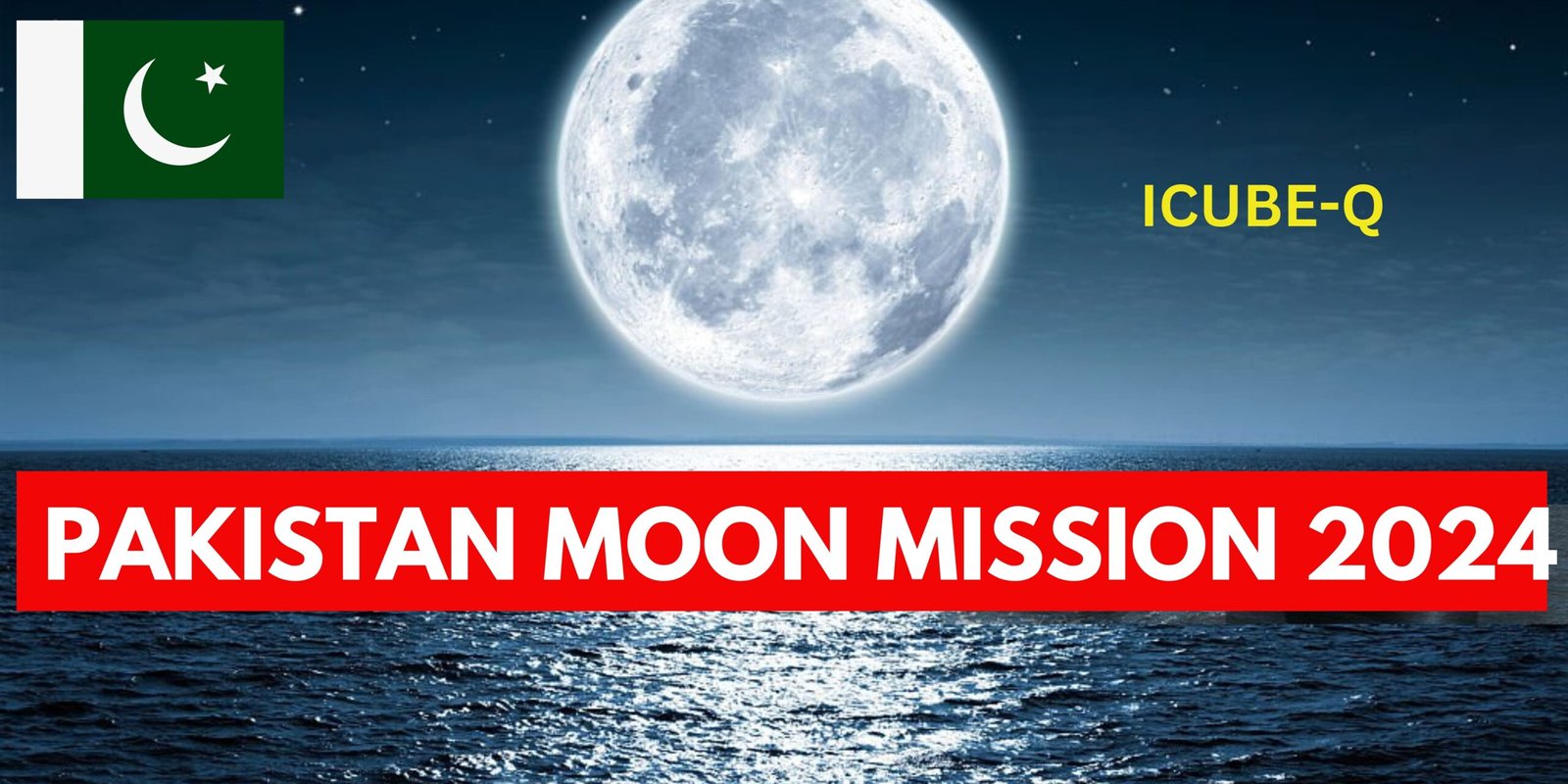
Pakistan has made a remarkable achievement in the field of space exploration by launching its first-ever moon mission, ICUBE-Qamar (ICUBE-Q). This historic milestone marks a significant step forward for the country’s space program and showcases its capabilities in the global space community.
The Mission:
ICUBE-Q is a cube satellite designed and developed by the Institute of Space Technology (IST) in collaboration with the China National Space Administration (CNSA). The mission aims to study the lunar surface, composition, and environment, as well as test technologies for future deep space missions.

The Launch:
The ICUBE-Q satellite was launched on May 3, 2024, aboard China’s Chang’E-6 mission from the Wenchang Space Launch Site in Hainan, China.

Objectives:
- Study the lunar geology and composition
- Investigate the lunar exosphere and magnetosphere
- Test technologies for future deep space missions
- Inspire future generations of scientists and engineers
Instruments:
- Lunar High Resolution Camera (LHRC)
- Lunar Low Resolution Camera (LLRC)
- Lunar Spectrometer (LS)
- Lunar Magnetometer (LM)

Significance:
Pakistan’s moon mission demonstrates the country’s commitment to space exploration and its potential for scientific discovery. This achievement will inspire future generations of scientists, engineers, and researchers in Pakistan and beyond.
Conclusion:
Pakistan’s moon mission is a historic achievement that showcases the country’s capabilities in space exploration. This mission will contribute significantly to our understanding of the moon and the universe, and we look forward to more exciting developments in the future!





Very informative article.